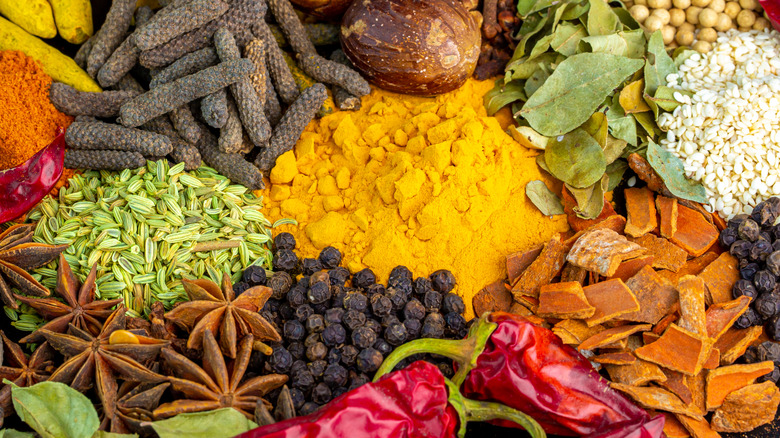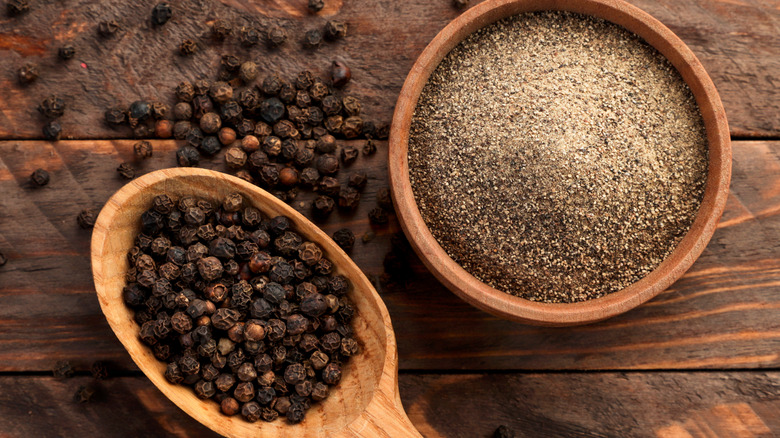The Common Spice That Was Once So Valuable It Was Called 'Black Gold'
Every once in a while, a dish could use a little something extra — some pizzazz, if you will. Spices are often added to foods and beverages to enhance their flavor and aroma, to alter their texture, and to offer a slew of convenient nutrients and health benefits. Culinary professionals and everyday consumers alike appreciate the power of a simple ingredient — or a careful blend — to turn a meal from "meh" to "wow."
From fiery chili powder to refreshing cilantro to sweet clove, spices and seasonings come in a variety of colors, fragrances, forms, and palates. There is one particular spice that, while now a commonplace staple in many parts of the world, was once considered incredibly valuable. In fact, it's probably incorporated it into a number of plates or bowls of grub you've recently eaten. Hint: This ubiquitous, sharp tasting spice, according to Healthline, is an excellent source of antioxidants, helps promote brain and gut health, and is believed to provide pain relief. It also causes some people to sneeze.
Black pepper was an ancient form of currency
Black pepper (Piper nigrum) is one of the most widely consumed, most versatile spices on the planet. These days, pepper grinders and shakers can be spotted in most kitchens and on most restaurant dining tables — typically alongside salt, pepper's tangy partner in crime. However, this wasn't the case a few thousand years ago. In fact, black pepper was once so expensive and deemed so precious, people literally used it as money. According to Salthouse and Peppermongers, black pepper has been used in Indian cuisine since 2000 BC, and it soon gained popularity across Asia and the Middle East. Over time, black pepper made its way to Europe and the Americas.
The McCormick Science Institute explains that black pepper, which used to be known as "black gold" or the "king of spices," was an acceptable payment for taxes, rent, and dowries. When Rome was captured by the Visigoths around 410 AD, the Romans paid 3,000 pounds of black pepper as ransom, along with 5,000 pounds of gold and 30,000 pounds of silver, per the World History Encyclopedia. Next time you rub black pepper onto your steak or sprinkle it on top of your veggies, soups, and other dishes, take a moment to remember its rich history.

